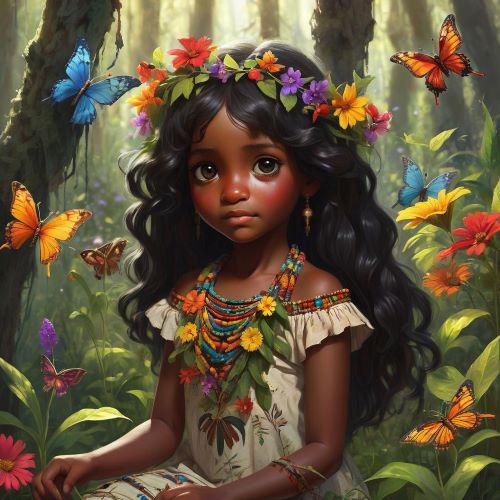Dahomey Mythology
Unveiling the vibrant tapestry of Dahomey mythology, the belief system of the Fon people who once ruled the powerful Dahomey Kingdom (present-day Benin), offers a window into a fascinating world. Unlike a singular, overarching narrative, Dahomean myths encompass a dynamic collection of regional stories passed down through generations. These tales illuminate the Fon people’s deep connection to the natural world, their ancestors, and the powerful deities they worshipped, providing a glimpse into the cultural heart of this historical West African kingdom.
A cornerstone of Dahomean mythology lies in the pantheon of Vodun, powerful spirits who embody various aspects of nature, human experience, and societal values. Mawu, the sky god, is often depicted as the benevolent creator, alongside Lisa, the earth goddess, representing the complementary forces of creation. Other prominent Vodun include Xevioso, the thunder god associated with justice, and Gu, the iron god of war. These deities were believed to influence all aspects of life, and elaborate rituals and offerings were performed to appease them and seek their blessings. Dahomean creation myths often spoke of Mawu and Lisa descending from the heavens, establishing the natural order and giving rise to humanity. Understanding the Vodun and their roles within the cosmos was central to the Dahomean worldview.
Ancestral veneration played a significant role in Dahomean mythology. The Fon people believed that the spirits of deceased ancestors, the Aladaa, held significant influence over the lives of the living. The Aladaa were seen as watchful guardians, offering guidance, ensuring the well-being of their descendants, and acting as intermediaries between the physical and spiritual realms. Maintaining a harmonious relationship with the Aladaa was crucial. Elaborate funeral rites were performed to ensure a smooth transition for the deceased into the spirit world. Additionally, shrines were erected, and offerings were made to appease the Aladaa and seek their continued support. This deep respect for ancestors reflected the importance placed on lineage and the continuation of family traditions within Fon society.
Dahomean mythology also featured captivating stories of legendary figures and powerful spirits. One such figure was Agassou, the founder of the Dahomey Kingdom, who was believed to possess a divine connection to the thunder god Xevioso. Another intriguing character was the Hwedo, a society of elite female warriors renowned for their bravery and skill in battle. These myths and legends not only served to entertain but also reinforced societal values and provided a sense of legitimacy to the ruling class. The prominent role of the Hwedo in Dahomean mythology, for instance, highlighted the importance of female warriors within the kingdom’s military structure.
Delving into Dahomean mythology allows us to appreciate the rich tapestry of beliefs and traditions that shaped the Fon people’s worldview for centuries. From the pantheon of Vodun deities who influenced every aspect of life to the veneration of ancestors and the presence of legendary figures, these myths offer a profound exploration of the Fon people’s connection to the spirit realm, their history, and their place in the universe. The enduring legacy of Dahomean mythology lies in its ability to illuminate the cultural and social fabric of the Dahomey Kingdom, offering timeless wisdom and fostering a deeper understanding of this remarkable West African civilization.

